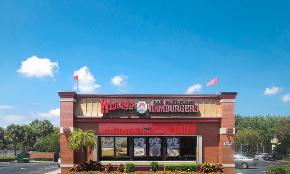LOS ANGELES—Asian investors are increasingly looking stateside to find a home for their capital, and with lower yield requirements, they are raising the bar on competition for these properties. These investors are particularly interested in hotel properties, so we sat down with Geoffrey Davis, president and senior managing principal at Hospitality Real Estate Counselors, and Michael Blahosky, SVP at HREC, to talk about the influx of Asian investors, where they are finding opportunities and why they are so attracted to the US market.
GlobeSt.com: Why are Asian investors coming to the U.S.? Is this more about our economy or their economies?
Michael Blahosky: There are a few reasons. The Chinese middle class is about 350 million strong, and my Chinese clients believe that in the next few years the Chinese government is going to make getting a visa much easier than it has been historically. This middle class is going to want to travel, and Southern California is their number one destination. That is why there has been a lot of activity here. I don’t think it is about our economy or their economy. I think they want to build a beachhead here, and I think they like investing in the United States because it is pretty stable.
Geoffrey Davis: The US is still seen by the world economy as a stable investment, and investors from Asian countries have lower cost of capital and yield requirements than a lot of domestic investors. So, they have been able to win deals simply because they have been more aggressive in their pricing. While Mike is focused on Southern California, we have also completed transactions with Asian investors across the country, including a recent hotel sale in Dallas to a Korean conglomerate.
GlobeSt.com: You mentioned that Asian investors can be much more aggressive in their pricing. How much is this competition driving up prices?
Blahosky: In the deals that I have done, they probably value add it at 5% to 10% on most deals. As Jeff said, they are satisfied with a lower return and they underwrite their deals differently. On a lot of the deals that I have done, they are only requiring 50% debt and they put up 50% equity, whereas typically our domestic investors would want to do 25% and 35% equity and the rest in debt. That changes the game a lot. In many cases they use off-shore banks and have more favorable rates than we can get here.
Davis: To Mike’s point, with the Korean conglomerate in Dallas, they used a Korean bank. But, with one of our Chinese clients, we have done five acquisition loans where they have used domestic lenders; primarily insurance companies and bridge lenders, not necessarily CMBS, and they have used 50% to 65% leverage. It depends on the group. Some have used off-shore lending relationships because you can get good money cheaper, but you have to go full recourse, typically, with the home bank. As opposed to coming here, you can still get pretty good terms at a higher cost of capital and it would be nonrecourse. We have seen the Asian investors use both buckets.
GlobeSt.com: In terms of foreign investors more generally, are Asian investors the most dominant in the market or is there competition from other foreign capital as well?
Davis: The Asian investors are the most active in the market. We haven’t seen capital from Europe be this aggressive across the entire US market. Some other foreign investors are limited to the top eight to 10 US markets, whereas Asian investors, although they are most attracted to the West Coast, have ventured all over the US, primarily in gateway markets but also in secondary markets as well.
GlobeSt.com: What are some of the secondary markets attracting Asian investors?
Blahosky: We have done deals in San Pedro, which I would say is a borderline secondary market. We have done deals in Anaheim North, Oxnard, Ventura and Valencia. The investors I work with like the Southern California catchall, if you will, and they are willing to do business in secondary markets if the terms are there and there are good brands. They do like branded product, like the Marriott Hilton, Starwood and other top-tier brands.

















 Copyright © 2024 ALM Global, LLC. All Rights Reserved.
Copyright © 2024 ALM Global, LLC. All Rights Reserved.